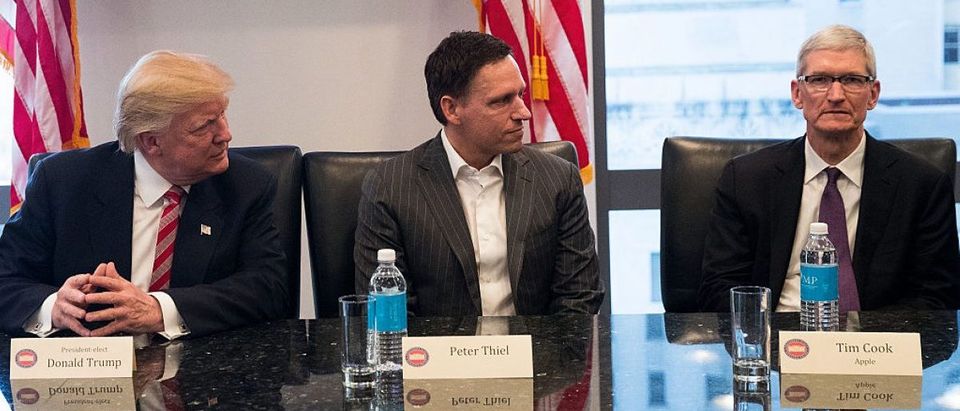Apple finally broke its silence on net neutrality after recently publishing comments to the Federal Communications Commission’s (FCC) public filing system, but it failed to address the main component of the contentious debate.
Vice President of Public Policy Cynthia Hogano represents the larger tech conglomerate, argues that strong protections for the internet are imperative for fostering access for as many people as possible.
“Broadband providers oould not block, throttle, or otherwise discriminate against lawful websites and services. Providers of online goods and services need assurance that they will be able to reliably reach their customers without interference from the underlying broadband provider,” Hogan wrote in the official filing to the FCC. “An open internet ensures that hundreds of millions of consumers get the experience they want, over the broadband connections they choose, to use the devices they love, which have become an integral part of their lives.”
Apple, though, failed to address the debate over classifying the internet as a public utility under the Title II classification, like water or electricity. This could mean that its support for net neutrality doesn’t necessarily include a heavy-handed government acting as the primary arbitrator and nucleus of the internet.
The debate over net neutrality has been heating up in recent months after new FCC leadership voiced their aversion and intent to unroll Obama-era rules the agency imposed only roughly a couple of years ago. (RELATED: EXCLUSIVE: 2014 FCC Gave Special Treatment To Liberal Groups)
Net neutrality is a nebulous term with a wavering definition, but is generally referred to as the principle that internet service providers do not have a right to discriminate against certain forms of traffic, nor to offer faster speeds to higher-paying consumers. For supporters, it means all internet traffic is treated equally. For critics, it means a government takeover that restricts companies’ ability to invest in faster infrastructure, or to offer special services and deals.
It is important to distinguish that wanting the government to categorize the internet as a Title II utility (meaning publicly controlled) is not the exact same as net neutrality. Placing the internet under the Title II classification is a mechanism to enforce net neutrality in a comprehensive manner. Net neutrality could still conceivably be enforced without such a designation.
While it’s not precisely clear why Apple didn’t make any mentions of Title II, which is the legitimate legal issue, it seems to be on the same page as the American people.
A poll co-commissioned by Morning Consult and NCTA, a trade group that represents the cable and internet industry, showed that people want net neutrality rules so broadband providers don’t throttle streaming speeds, or create “fast lanes,” but they don’t agree necessarily with the Title II aspect.
One of the poll questions, for example, asked: “When it comes to the role of the federal government in regulating access to the Internet, which of the following comes closest to your view, even if none are exactly right?” Fifty-three percent said “the government should have a light touch approach” with regulators monitoring the marketplace and only taking action “if consumers are harmed,” a method FCC Chairman Ajit Pai has vouched for on multiple occasions. Twenty-five percent said the government should not regulate the Internet at all, while 12 percent said the government should “have the ability to set specific prices, terms and conditions for Internet Access.” In other words, more than four times as many people said light touch is preferable to a heavy hand when it comes to enforcement. (RELATED: FCC Chair: Regulating The Internet Is Similar To Censoring College Speakers)
Another poll question asked: “As you may know, a public utility is an essential public service, such as electricity, water, or gas, that is regulated by government. Knowing this, which of the following do you agree with more, even if neither is exactly right?” Fifty-one percent of people answered that the internet should not be considered a public utility, with 33 percent answering it should be registered as one. In a similar question, the survey asked if the government were to regulate the internet as a utility, would innovation in that really extensive field get better, worse or stay the same. Only 21 percent answered that it would get better.
A totally separate poll sponsored by Morning Consult and Politico revealed that 60 percent of people either strongly supported or somewhat supported net neutrality rules. That was the only question on the subject, and it also failed to decipher between Title II.
These responses show that people, in general, support net neutrality rules, but not mandating the internet become a Title II utility, much like Apple’s ostensible position.
All content created by the Daily Caller News Foundation, an independent and nonpartisan newswire service, is available without charge to any legitimate news publisher that can provide a large audience. All republished articles must include our logo, our reporter’s byline and their DCNF affiliation. For any questions about our guidelines or partnering with us, please contact licensing@dailycallernewsfoundation.org.


